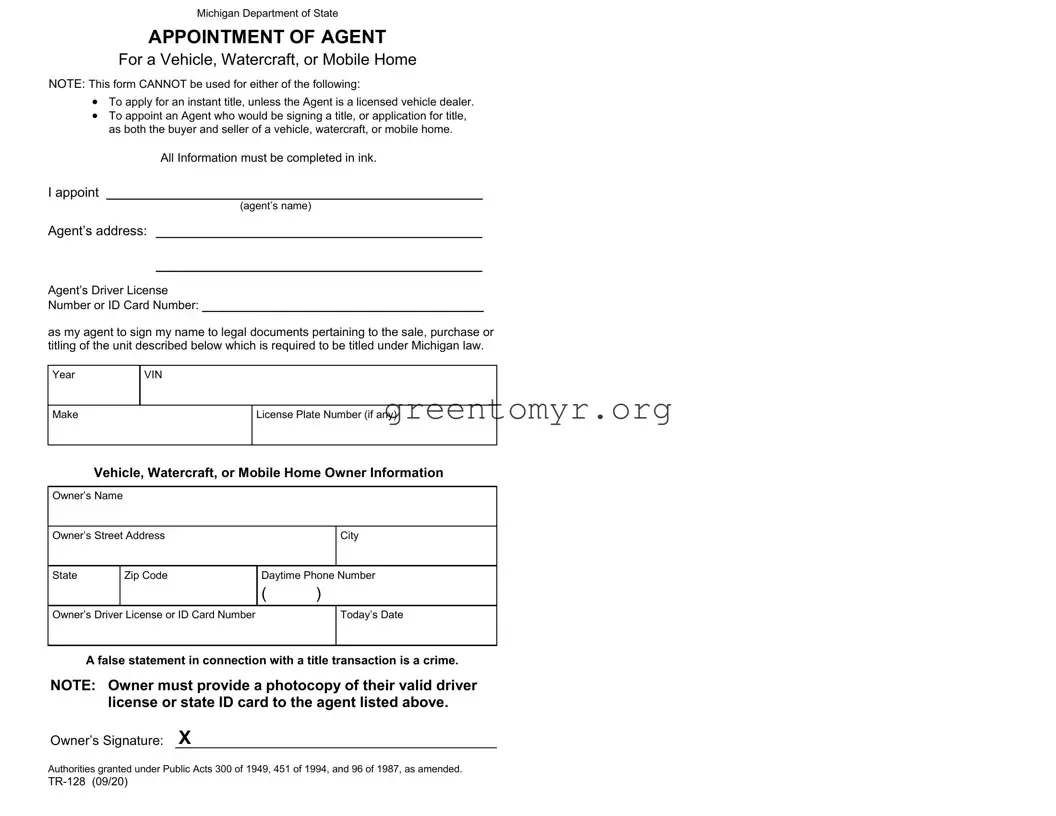Michigan Department of State
APPOINTMENT OF AGENT
For a Vehicle, Watercraft, or Mobile Home
NOTE: This form CANNOT be used for either of the following:
•To apply for an instant title, unless the Agent is a licensed vehicle dealer.
•To appoint an Agent who would be signing a title, or application for title, as both the buyer and seller of a vehicle, watercraft, or mobile home.
All Information must be completed in ink.
I appoint ___________________________________________________
(agent’s name)
Agent’s address: ____________________________________________
____________________________________________
Agent’s Driver License
Number or ID Card Number: ______________________________________
as my agent to sign my name to legal documents pertaining to the sale, purchase or titling of the unit described below which is required to be titled under Michigan law.
License Plate Number (if any)
Vehicle, Watercraft, or Mobile Home Owner Information
Owner’s Name
Owner’s Street Address |
|
|
City |
|
|
|
|
State |
Zip Code |
Daytime Phone Number |
|
|
( |
) |
|
|
|
|
|
|
Owner’s Driver License or ID Card Number |
|
|
Today’s Date |
|
|
|
|
|
A false statement in connection with a title transaction is a crime.
NOTE: Owner must provide a photocopy of their valid driver license or state ID card to the agent listed above.
Owner’s Signature: X
Authorities granted under Public Acts 300 of 1949, 451 of 1994, and 96 of 1987, as amended.

